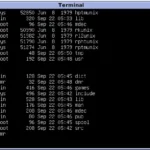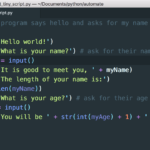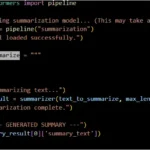
Python Coding Essentials: Write Your Own UNIX Program
One of the best ways to solidify your programming skills is to write your own UNIX program.
New to Python? You’re in the right place. This category features easy-to-follow tutorials covering all the basics, from variables and loops to functions. Build a strong programming foundation here!

One of the best ways to solidify your programming skills is to write your own UNIX program.

Once you've learned the fundamentals of a programming language, the best way to solidify your knowledge is to build things.

Once you are comfortable with the fundamentals of Python, it's time to explore the features that can make your code more powerful, efficient, and professional.

With its simplicity, powerful libraries, and extensive community support, Python has become a go-to language for security professionals.

In the modern world, data is one of the most valuable assets, and knowing how to analyze it is a critical skill.

As your programs grow larger, it becomes crucial to know how to organize your code to keep it clean, efficient, and easy to maintain.

Nearly every real-world application needs to read data from or write data to a permanent storage medium.

To write effective and efficient code, you need to store and organize your data properly.

As you move beyond simple scripts, you'll need a way to organize and manage more complex systems.

A program is more than just a list of commands executed in order; it needs to make decisions and perform repetitive tasks.

Are you looking for a powerful yet easy-to-learn programming language?

To build a strong programming foundation, you first need to master Python basics.

This guide will walk you through building a simple yet powerful text summarizer.
Sometimes you want to give your Python script information right when you run it from the terminal, without waiting for it to ask for input.
If you're learning to code, you'll almost certainly encounter the FizzBuzz problem.